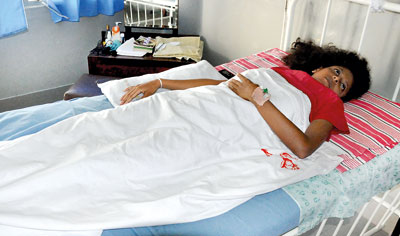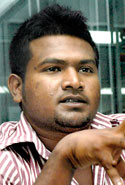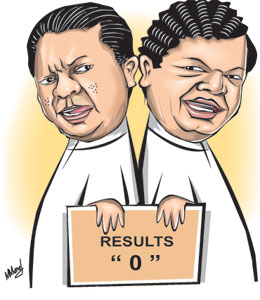First Universities
were Wesleyan Jaffna Central,
were Wesleyan Jaffna Central,
and in Batticotta, Jaffna
S. Ratnajeevan H. Hoole, Lakbimanews.
National Integration – ‘Celebrating Tamil Contributions’ These are the days of talk – and I do mean talk – of national integration. As I write a paper to be read at the annual meeting of the American Society of Engineering Education on the siting of the new engineering faculty in Jaffna and do the requisite reading for it, my attention is increasingly forced on two Tamil achievements that do not get the plaudits they deserve from our nation.
If Tamils are truly a part of Sri Lanka, then our achievements must be recognized. And what better start to integration than that?
S. Ratnajeevan H. Hoole, Lakbimanews.
National Integration – ‘Celebrating Tamil Contributions’ These are the days of talk – and I do mean talk – of national integration. As I write a paper to be read at the annual meeting of the American Society of Engineering Education on the siting of the new engineering faculty in Jaffna and do the requisite reading for it, my attention is increasingly forced on two Tamil achievements that do not get the plaudits they deserve from our nation.
If Tamils are truly a part of Sri Lanka, then our achievements must be recognized. And what better start to integration than that?
- First universities – Batticotta and Jaffna Central
Our official histories of university education in this country begin with University College, Colombo (1921). But real university education began at Batticotta (1823, now Jaffna College) and the  Wesleyan Seminary (1834, now Jaffna Central College (Note 1). There could have been other seminaries between the two in Colombo. By the 1890s Jaffna’s schools (St. John’s, Central, and Jaffna Colleges) were successfully presenting candidates for the First in Arts of Madras and Calcutta.
Wesleyan Seminary (1834, now Jaffna Central College (Note 1). There could have been other seminaries between the two in Colombo. By the 1890s Jaffna’s schools (St. John’s, Central, and Jaffna Colleges) were successfully presenting candidates for the First in Arts of Madras and Calcutta.
It has been argued at the UGC in my time that if we included these institutions in our history of university education, then we must also include the Buddhist pirivenas which go back to earlier times. That argument is false and insulting; false because these seminaries were modern universities and not pirivenas. Indeed that argument did not apply at all to the FA candidatures.
Here is what Sir James Emerson Tennent (Colonial Secretary) had to say in a letter dated Jaffna, March 23, 1848 after observing the examinations being conducted at Batticotta and the Wesleyan Seminary: “The Collegiate Institution of Batticotta is entitled to rank with many an European University. I was present a few days after at a similar examination of the kindred seminary of the Wesleyan Methodists at Jaffna, conducted by Mr. Percival, one of the most profound Tamil scholars now in India (as Professor and Registrar at Madras); the course of study was nearly the same, the students taken from the same rank of the natives, and the display of classical learning and scientific attainment which I witnessed was in no degree inferior to that with which I had been so much charmed at the American seminary.”
We have testimony to the curriculum which was far above a pirivena training: “In the academical department, Algebra, Euclid, Conic Sections, Natural Philosophy, Chemistry, Astronomy, Logic, Rhetoric, Mental and Moral Philosophy, Paley’s Natural Theology, Butler’s Analogy, Classical Tamil and Sanskrit; in the normal department Arithmetic, Algebra, Grammar, Geography, History, Natural Theology, Tamil, Classical Reader, English Bible etc.” Religion was but a tiny part of the curriculum.
So why were these so called seminaries not colleges? It is because the British administration had plans to found the first modern university/college as a Church of England institution and refused permission to other missions to use the appropriate title. In the event, the Anglicans never got down to it!
A century later, we must ask: How many of our UGC universities can today rank “with many an European university?” Just as the colonial government refused them the due recognition, will the government of independent Sri Lanka also so refuse?
 Wesleyan Seminary (1834, now Jaffna Central College (Note 1). There could have been other seminaries between the two in Colombo. By the 1890s Jaffna’s schools (St. John’s, Central, and Jaffna Colleges) were successfully presenting candidates for the First in Arts of Madras and Calcutta.
Wesleyan Seminary (1834, now Jaffna Central College (Note 1). There could have been other seminaries between the two in Colombo. By the 1890s Jaffna’s schools (St. John’s, Central, and Jaffna Colleges) were successfully presenting candidates for the First in Arts of Madras and Calcutta.It has been argued at the UGC in my time that if we included these institutions in our history of university education, then we must also include the Buddhist pirivenas which go back to earlier times. That argument is false and insulting; false because these seminaries were modern universities and not pirivenas. Indeed that argument did not apply at all to the FA candidatures.
Here is what Sir James Emerson Tennent (Colonial Secretary) had to say in a letter dated Jaffna, March 23, 1848 after observing the examinations being conducted at Batticotta and the Wesleyan Seminary: “The Collegiate Institution of Batticotta is entitled to rank with many an European University. I was present a few days after at a similar examination of the kindred seminary of the Wesleyan Methodists at Jaffna, conducted by Mr. Percival, one of the most profound Tamil scholars now in India (as Professor and Registrar at Madras); the course of study was nearly the same, the students taken from the same rank of the natives, and the display of classical learning and scientific attainment which I witnessed was in no degree inferior to that with which I had been so much charmed at the American seminary.”
We have testimony to the curriculum which was far above a pirivena training: “In the academical department, Algebra, Euclid, Conic Sections, Natural Philosophy, Chemistry, Astronomy, Logic, Rhetoric, Mental and Moral Philosophy, Paley’s Natural Theology, Butler’s Analogy, Classical Tamil and Sanskrit; in the normal department Arithmetic, Algebra, Grammar, Geography, History, Natural Theology, Tamil, Classical Reader, English Bible etc.” Religion was but a tiny part of the curriculum.
So why were these so called seminaries not colleges? It is because the British administration had plans to found the first modern university/college as a Church of England institution and refused permission to other missions to use the appropriate title. In the event, the Anglicans never got down to it!
A century later, we must ask: How many of our UGC universities can today rank “with many an European university?” Just as the colonial government refused them the due recognition, will the government of independent Sri Lanka also so refuse?
- Christian David – the first black missionary priest and educator
Nearly all written histories of the early missionaries, who contributed so much to our education, list only Europeans. A well accepted CMS history lists the first Protestant missionaries to visit Ceylon from England, as, Rev. J.D. Palm who settled down as pastor of the Dutch Church at Wolfendahl in Colombo and therefore gives “the pioneer of modern missions in Ceylon” as the Rev. James Chater who landed in Colombo on April 16, 1812.
The real pioneer, however, is Christian David – born in 1771, “a native of Malabar,” “formerly a servant in the family of the Rev. (Christian Frederick) Schwartz,” “the son of the pious Satianaden ...who had himself waited when a boy on the apostolic missionary (Schwartz),” “a Tamulian (sic.), and pupil of the late Rev. C.F. Schwartz ... (one of the) the black preachers whom (the Dutch) left behind,” and “a convert of the missionary Schwartsz (sic.) in South India”
(Note 2). An energetic and creative man, David, who had been abandoned by the Dutch, noticed that Lieut. Colonel B.G. Barbut (Note 3), Commandant and Collector of Jaffna, was at the “Cutcheri” using the Church of St. John the Baptist Chundikuli (affiliated later to St. John’s College (1851) named after St. John the Disciple) as a cattle shed. So David went daily to pray at the church occupied by Barbut’s cattle (probably to feed his soldiers). On noticing this Barbut melted and had the cattle removed, from the church building, appointed David as a Licensed Preacher of the Gospel. Governor Frederick North attended David’s service in March 1802. David was crucial to the Church, as catechist and, says Martyn, superintendent “of over forty schools in the Northern Districts of the Island,” which were in fact Dutch schools fallen into neglect.
When Rev. Claudius Buchanan of CMS crossed from Rameswaram by Adam’s Bridge to Ceylon in 1808, he found that “the interests of the Church of England in the province of Jaffna were supported by the one Hindoo catechist, Christian David” (and that there were only two European priests elsewhere). The other missions would not arrive till 1814-18.
David’s reputation was so high that in 1814 in Arippoo (near Mannar), Governor Brownrigg’s wife, upon finding David there, hurriedly organized a service to be officiated using her husband as David’s lay-assistant and her own prayer book for the liturgy since David had not come to Arippoo ready to hold a service.
By the 1820s, The Revs. Joseph Knight and W. Adley were running schools in Jaffna. On Sundays, they alternated performing divine service “in Tamul at Mr. David’s church.” This was because he was still a catechist and not yet ordained. However, David was formally in charge of the parish (according to a board at the church), and remained so until 1841.
Despite these credentials, David had difficulties in being recognized by the Anglican Church hierarchy. Bishop Reginald Heber (Anglican Bishop of Calcutta 1823-26, in charge of India and Ceylon then) seemed to have doubts about ordaining David into the Anglican priesthood. However, since David had been authorized to hold services at St. John’s with a licence to preach as “a catechist in the employ of the Society for Promoting Christian Knowledge in Ceylon” – in fact, Ceylon’s Governor Barnes himself had in March 1802 given David the title of Colonial Chaplain – Bishop Heber felt compelled to acknowledge David through ordination.
Heber calls David’s ordination as Deacon about June 1826 “interesting and awful,” although he describes David as having “passed an exceeding good examination, and (giving) much satisfaction to everybody by his modesty, good sense and good manners.” An almost immediate ordination as priest followed (1826), which Heber puts as giving himself both satisfaction and a terrible responsibility. We presume this was because David would have become Ceylon’s first real black priest (Note 4). Although others suggested that David’s first sermon upon ordination be published, Heber says he discouraged it.
Would we today deny to christian David the ready recognition that his times denied him as Ceylon’s first black Protestant priest, missionary and educator?
Note 1: Nearly all schools in a competition for heritage give earlier years for their founding. Their dates usually are not supported by the records.
Note 2: See works by Revs. George Smith, James Selkirk, Hugh Pearson, and J.W. Balding.
John H. Martyn says David was born of a highly connected and distinguished family, and his father held the post of the judge of the High Court of Justice under the regime of the Royal Dutch Government and was one of the Elders of the Lutheran Church. However, I find Martyn unreliable because of inconsistencies in his account which space does not warrant expanding on.
I agree with the way “black” is used because there is no one who is really black and no one really white. Black and White are political concepts.
Note 3: Note 3: Thanks to Mark E. Balmforth of Columbia University for the reference on Col. Barbut. He has been investigating the earliest non-European missionaries to Ceylon for his thesis. Dr. Darshan Ambalavanar has rightly pointed out that there were such clergy under the Dutch under whom some were trained at Leiden University after initial training in Nallur. C.R.A. Hoole has written of Tamil Bible translation by Adrian de Mey of Nallur.
Note 4: Mr. de Sarum (sic.) with an English wife was the second black priest and colonial chaplain in Ceylon. Heber thinks he was “entered” at Cambridge but does not say if he graduated. The Roman Catholics probably had black priests in Ceylon.
The real pioneer, however, is Christian David – born in 1771, “a native of Malabar,” “formerly a servant in the family of the Rev. (Christian Frederick) Schwartz,” “the son of the pious Satianaden ...who had himself waited when a boy on the apostolic missionary (Schwartz),” “a Tamulian (sic.), and pupil of the late Rev. C.F. Schwartz ... (one of the) the black preachers whom (the Dutch) left behind,” and “a convert of the missionary Schwartsz (sic.) in South India”
(Note 2). An energetic and creative man, David, who had been abandoned by the Dutch, noticed that Lieut. Colonel B.G. Barbut (Note 3), Commandant and Collector of Jaffna, was at the “Cutcheri” using the Church of St. John the Baptist Chundikuli (affiliated later to St. John’s College (1851) named after St. John the Disciple) as a cattle shed. So David went daily to pray at the church occupied by Barbut’s cattle (probably to feed his soldiers). On noticing this Barbut melted and had the cattle removed, from the church building, appointed David as a Licensed Preacher of the Gospel. Governor Frederick North attended David’s service in March 1802. David was crucial to the Church, as catechist and, says Martyn, superintendent “of over forty schools in the Northern Districts of the Island,” which were in fact Dutch schools fallen into neglect.
When Rev. Claudius Buchanan of CMS crossed from Rameswaram by Adam’s Bridge to Ceylon in 1808, he found that “the interests of the Church of England in the province of Jaffna were supported by the one Hindoo catechist, Christian David” (and that there were only two European priests elsewhere). The other missions would not arrive till 1814-18.
David’s reputation was so high that in 1814 in Arippoo (near Mannar), Governor Brownrigg’s wife, upon finding David there, hurriedly organized a service to be officiated using her husband as David’s lay-assistant and her own prayer book for the liturgy since David had not come to Arippoo ready to hold a service.
By the 1820s, The Revs. Joseph Knight and W. Adley were running schools in Jaffna. On Sundays, they alternated performing divine service “in Tamul at Mr. David’s church.” This was because he was still a catechist and not yet ordained. However, David was formally in charge of the parish (according to a board at the church), and remained so until 1841.
Despite these credentials, David had difficulties in being recognized by the Anglican Church hierarchy. Bishop Reginald Heber (Anglican Bishop of Calcutta 1823-26, in charge of India and Ceylon then) seemed to have doubts about ordaining David into the Anglican priesthood. However, since David had been authorized to hold services at St. John’s with a licence to preach as “a catechist in the employ of the Society for Promoting Christian Knowledge in Ceylon” – in fact, Ceylon’s Governor Barnes himself had in March 1802 given David the title of Colonial Chaplain – Bishop Heber felt compelled to acknowledge David through ordination.
Heber calls David’s ordination as Deacon about June 1826 “interesting and awful,” although he describes David as having “passed an exceeding good examination, and (giving) much satisfaction to everybody by his modesty, good sense and good manners.” An almost immediate ordination as priest followed (1826), which Heber puts as giving himself both satisfaction and a terrible responsibility. We presume this was because David would have become Ceylon’s first real black priest (Note 4). Although others suggested that David’s first sermon upon ordination be published, Heber says he discouraged it.
Would we today deny to christian David the ready recognition that his times denied him as Ceylon’s first black Protestant priest, missionary and educator?
Note 1: Nearly all schools in a competition for heritage give earlier years for their founding. Their dates usually are not supported by the records.
Note 2: See works by Revs. George Smith, James Selkirk, Hugh Pearson, and J.W. Balding.
John H. Martyn says David was born of a highly connected and distinguished family, and his father held the post of the judge of the High Court of Justice under the regime of the Royal Dutch Government and was one of the Elders of the Lutheran Church. However, I find Martyn unreliable because of inconsistencies in his account which space does not warrant expanding on.
I agree with the way “black” is used because there is no one who is really black and no one really white. Black and White are political concepts.
Note 3: Note 3: Thanks to Mark E. Balmforth of Columbia University for the reference on Col. Barbut. He has been investigating the earliest non-European missionaries to Ceylon for his thesis. Dr. Darshan Ambalavanar has rightly pointed out that there were such clergy under the Dutch under whom some were trained at Leiden University after initial training in Nallur. C.R.A. Hoole has written of Tamil Bible translation by Adrian de Mey of Nallur.
Note 4: Mr. de Sarum (sic.) with an English wife was the second black priest and colonial chaplain in Ceylon. Heber thinks he was “entered” at Cambridge but does not say if he graduated. The Roman Catholics probably had black priests in Ceylon.




